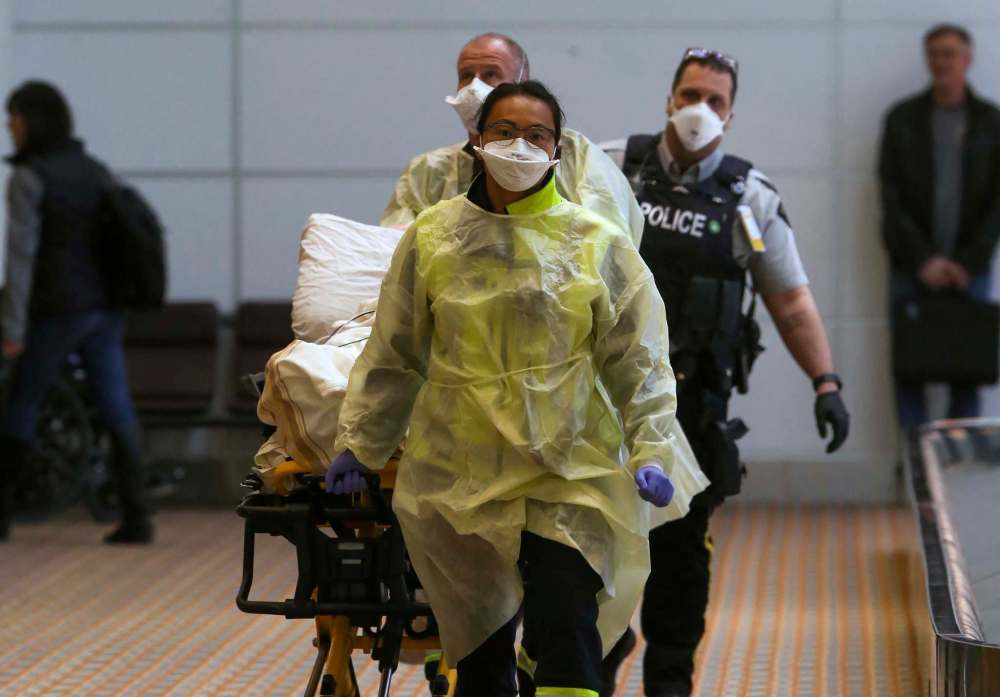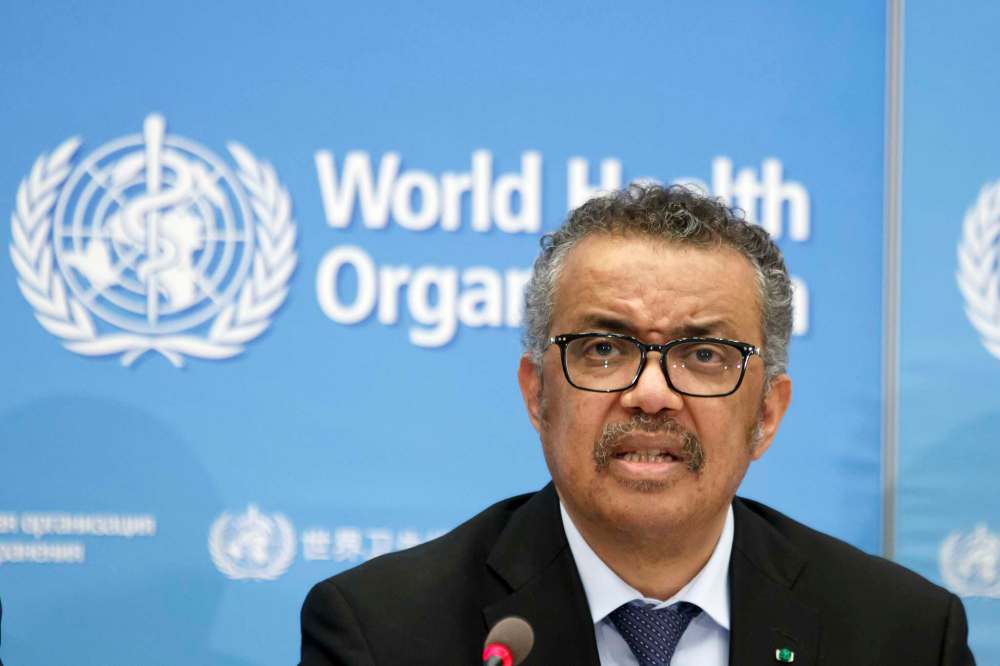Facts help calm fears of COVID-19
Advertisement
Read this article for free:
or
Already have an account? Log in here »
To continue reading, please subscribe:
Monthly Digital Subscription
$0 for the first 4 weeks*
- Enjoy unlimited reading on winnipegfreepress.com
- Read the E-Edition, our digital replica newspaper
- Access News Break, our award-winning app
- Play interactive puzzles
*No charge for 4 weeks then price increases to the regular rate of $19.00 plus GST every four weeks. Offer available to new and qualified returning subscribers only. Cancel any time.
Monthly Digital Subscription
$4.75/week*
- Enjoy unlimited reading on winnipegfreepress.com
- Read the E-Edition, our digital replica newspaper
- Access News Break, our award-winning app
- Play interactive puzzles
*Billed as $19 plus GST every four weeks. Cancel any time.
To continue reading, please subscribe:
Add Free Press access to your Brandon Sun subscription for only an additional
$1 for the first 4 weeks*
*Your next subscription payment will increase by $1.00 and you will be charged $16.99 plus GST for four weeks. After four weeks, your payment will increase to $23.99 plus GST every four weeks.
Read unlimited articles for free today:
or
Already have an account? Log in here »
Hey there, time traveller!
This article was published 28/02/2020 (2121 days ago), so information in it may no longer be current.
The World Health Organization’s director general had wise words this week for those who incite panic around the COVID-19 virus.
“Our greatest enemy right now is not the virus itself – it’s the fear, rumours and stigma,” said Dr. Tedros Adhanom Ghebreyesus during his opening statement at the WHO’s daily briefing on Friday. “And our greatest assets are facts, reason and solidarity.”
We could have used a lot more facts and reason (and less rumour and fear) Thursday when many jumped to the conclusion that a passenger taken off a Westjet flight in Winnipeg was suspected of having the novel coronavirus. The passenger did not, according to Premier Brian Pallister (although that still wasn’t confirmed as of Friday).

But that didn’t stop a flurry of reports, many on social media, that Winnipeg might be looking at its first confirmed case and that we should all be alarmed. Even if the passenger were infected, it’s hardly cause for panic.
That’s precisely the message the WHO has been trying to get across for weeks since the COVID-19 virus outbreak began in China in late December. Yes, it’s a serious disease. Health care systems and emergency response teams must be fully prepared to deal with it.
However, most people who become infected with the virus will, at most, experience mild illness. A small percentage will get very sick. An even smaller percentage, around two to three per cent on average, will die. But, just like seasonal influenza — which kills about 3,500 Canadians a year (there have already been 20 deaths from the flu in Manitoba this season) — those who die from the COVID-19 virus usually have underlying medical conditions, or are elderly.
Local health officials say we should take the same precautions against novel coronavirus that we do with other viruses, such as seasonal influenza: wash our hands frequently, cover our mouths when we sneeze or cough, and stay home when we’re sick. Those standing orders are repeated every year (in addition to recommending we get the flu shot).
Despite that, people still die from the flu every year. It’s tragic. However, we don’t get alarmed about it. We treat all viruses seriously, based on facts and science. We take precautions. Hospitals have protocols in place to deal with influenza, including detection and isolation, and they take measures to protect health care workers. But people don’t freak out on social media when we get hit with a bad flu season.
“Right now, certainly, the risk of acquiring novel coronavirus in Manitoba is low,” Manitoba’s chief provincial public health officer Dr. Brent Roussin said Thursday. “It’s much higher to acquire another respiratory virus, including a seasonal coronavirus, which we have many circulating.”
Other than the fact COVID-19 is a new virus (and that scientists are still learning about it), it’s not that much different. The mortality rate is somewhat higher than seasonal influenza (which averages about 0.1per cent), but this is not the Ebola virus, which has a death rate of up to 90 per cent.
We’re also fortunate to live in a country with modern medicine and well-resourced health care systems. We know how to respond to epidemics.
“We’ve learned a lot from SARS, we’ve learned a lot from pandemic influenza,” Roussin said. “Our systems are well prepared for these and we continue to prepare as the situation evolves.”

That’s not meant to downplay the seriousness of COVID-19. On the contrary, it’s about being prepared for it, having knowledge of what it is (including what the symptoms are) and keeping it in perspective.
According to the WHO, the most important thing is that health-care systems have measures in place to contain the virus when it arrives, including meticulous tracking of who infected patients had contact with. These, and many other measures, have found success not only in China, but in places like Singapore, which are now seeing a rapid decrease in new cases of COVID-19.
Global containment of this virus is still very much possible, according to the WHO.
COVID-19 will likely come to Manitoba. When it does, we need to respond to it based on facts and science, not rumours and misinformation. The last thing we need is more overreaction like we saw on Thursday.
tom.brodbeck@freepress.mb.ca

Tom has been covering Manitoba politics since the early 1990s and joined the Winnipeg Free Press news team in 2019.
Our newsroom depends on a growing audience of readers to power our journalism. If you are not a paid reader, please consider becoming a subscriber.
Our newsroom depends on its audience of readers to power our journalism. Thank you for your support.
History
Updated on Friday, February 28, 2020 5:26 PM CST: fixes byline














